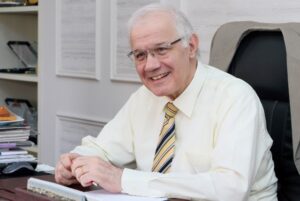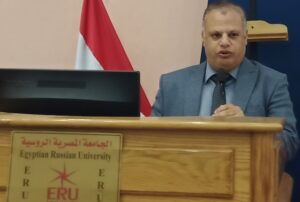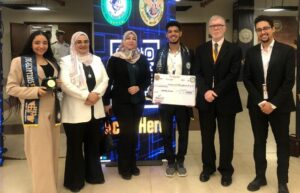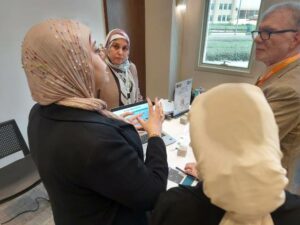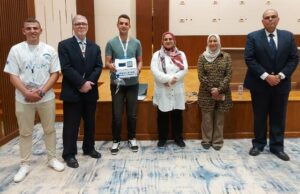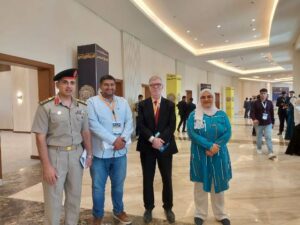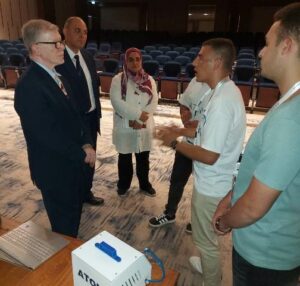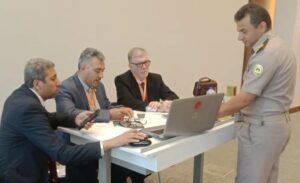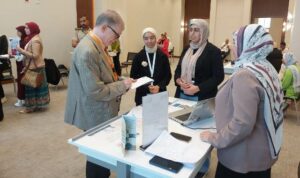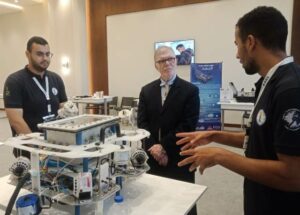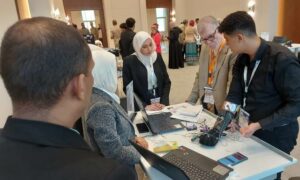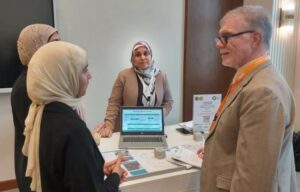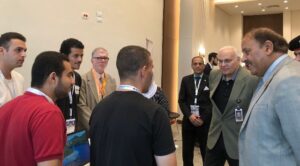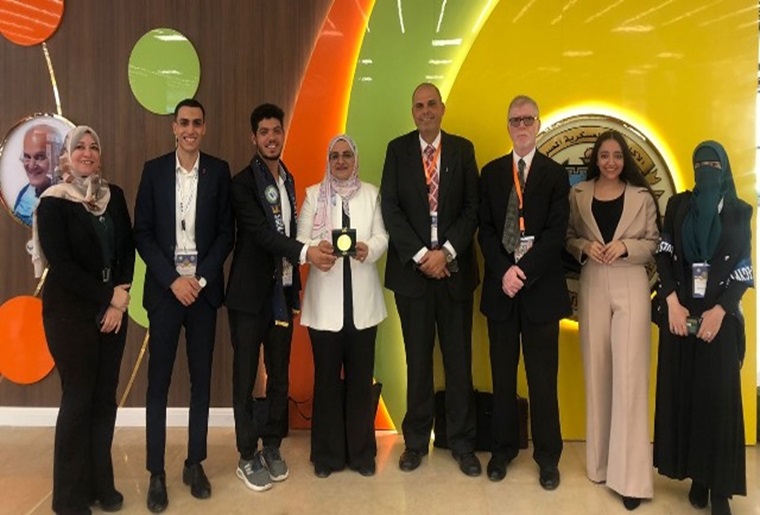At the New Administrative Capital... Egyptian-Russian University Actively Participates in the International Telecommunications Conference... Photos
Dr. Sherif Fakhry Mohamed Abdel Nabi, President of the Egyptian-Russian University, announced that, within the university’s commitment to effective communication and community engagement, believing in the importance of developing the university community and empowering and localizing technology and its applications, a high-level delegation from the College of Artificial Intelligence participated in the activities of the Fifth International Telecommunications Conference (ITC EGYPT 2025), which was held at the headquarters of the Egyptian Military Academy in the New Administrative Capital. This participation is part of the Egyptian state’s vision to support innovation and digital transformation, and enhance integration between scientific research and the production and defense sectors. He noted that the delegation was sent with the support of Dr. Mohamed Kamal El-Sayed Mustafa, Chairman of the University’s Board of Trustees.
In the same context, Dr. Hesham Fathy, Dean of the Faculty of Artificial Intelligence at the Egyptian Russian University, explained that the event was organized in cooperation with the International Institute of Technology (IEEE) and a number of local and international universities and research and scientific institutions, with the active participation of representatives of the Egyptian Armed Forces. He noted that this conference is a leading platform at the national and international levels, bringing together scientists, researchers, and inventors from more than ten countries in the fields of communications, artificial intelligence, smart systems, robotics, and sustainable energy.
The Dean of the College of Artificial Intelligence at the Egyptian Russian University noted that the conference provided a competitive scientific environment that enriched both academic and applied content, contributing to the transfer of knowledge and modern experiences to researchers, youth, and innovators. He noted that the college delegation was headed by Dr. Said Hassan Ibrahim, Vice Dean of the College, who participated in the scientific arbitration of the National Competition for Innovative Projects, held on the sidelines of the conference. Dozens of teams from universities (public, private, and civil), as well as institutes affiliated with the Ministry of Higher Education) participated, as did students from public, private, and international schools affiliated with the Ministry of Education.
Dr. Hesham Fathy stated that the arbitration took place in three stages, beginning with the first arbitration stage and continuing through the final rounds. Dr. Said Hassan, Vice Dean of the College of Artificial Intelligence at the university, participated in evaluating the research and scientific projects submitted by students according to criteria of innovation, applicability, and societal impact. He revealed that he was selected to be on the evaluation committee for the two best projects out of the seven best projects submitted by school students, reflecting the academic confidence and scientific standing he enjoys in the field of applied engineering.
For his part, Dr. Said Hassan Ibrahim, Vice Dean of the College of Artificial Intelligence at the Egyptian Russian University, revealed that the conference’s activities included several advanced scientific topics, including: wireless communications and radars, artificial intelligence and its military and civilian applications, robotics and autonomous systems, antennas and micro-frequencies, water desalination and resource sustainability, as well as cybersecurity and industrial control. He added that the conference also featured two major competitions: The National Projects Competition (medical sector, industrial applications, smart agriculture, mobile applications, and robotics), and special technological challenges such as anti-drone systems, autonomous vehicles, and water extraction from the air.
The Vice Dean of the College of Artificial Intelligence at the Egyptian Russian University reported that over 1,000 participants from various academic and technological institutions participated in the conference. Among the most prominent attendees were representatives of the IEEE, high-ranking military leaders, and representatives from Egyptian universities. Distinguished scientific and arbitration sessions were held, featuring innovative research presentations and specialized interventions that enriched the scientific and applied aspects of future technology.
Dr. Said Hassan Ibrahim added that at the conclusion of the conference, several important recommendations were issued, most notably: working to adopt the winning ideas and direct them towards industrial activation, supporting the establishment of technology incubators within universities and academies, expanding the scope of international cooperation in the field of communications, as well as enhancing youth participation in scientific challenges with a developmental dimension. He noted that the participation of the Egyptian-Russian University in this international scientific event came as an embodiment of its interest in supporting applied research and effective community participation, and reflects its administration’s keenness to enhance the position of its academic cadres in national and international forums, and to activate its role in building a scientific community capable of producing knowledge and localizing technology.
